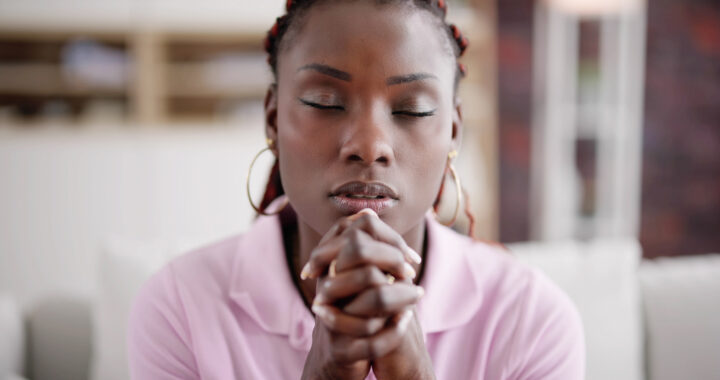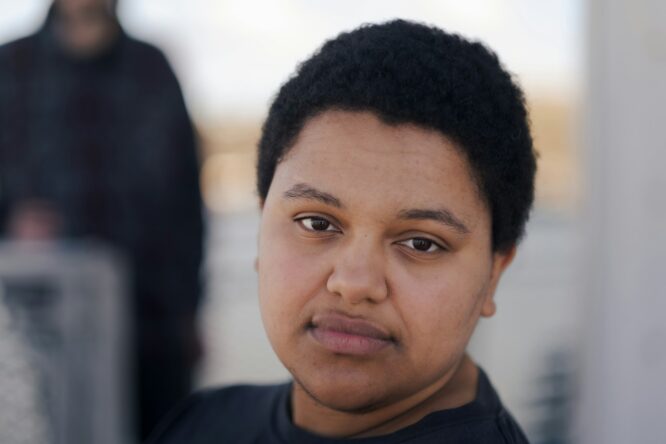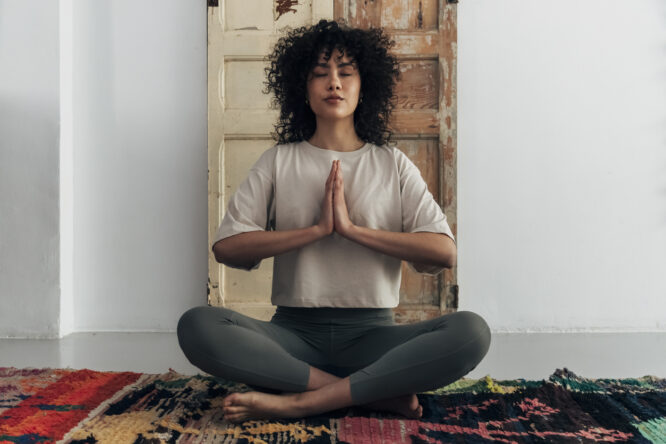In a world that often feels more cynical and disconnected from traditional religion, keeping faith—whatever form that takes—can feel both personal and kind of rebellious.

It’s still possible to have a rewarding spiritual life even in the modern world, even if it is a bit tougher. Whether it’s belief in a higher power, a spiritual practice, or a deep-rooted sense of purpose, here’s how people continue to hold on to their faith even when it’s no longer the dominant voice in the room.
1. They redefine what faith means to them personally.

For many, keeping faith isn’t about holding onto old rules; it’s about reshaping what faith looks like. Instead of rigid beliefs or rituals, they find meaning in personal connection, inner peace, or a quiet confidence in something bigger than themselves. This change often helps faith feel more honest. It’s no longer about proving anything—it’s about living in alignment with what feels deeply true, even if that no longer fits into traditional boxes.
2. They disconnect faith from institutions.

Just because someone’s faith isn’t tied to a church or religious body doesn’t mean it’s gone. Plenty of people have found ways to hold onto their spiritual beliefs while stepping away from institutions that didn’t feel right for them. They stop equating faith with hierarchy and start tuning into something more direct and personal. That break from structure doesn’t weaken their belief—it often strengthens it by removing the noise.
3. They use silence as a form of spiritual connection.

In a noisy, distracted world, intentionally creating moments of stillness becomes its own kind of sacred act. Whether it’s a walk without headphones, a few deep breaths before bed, or journaling in the morning, these pockets of quiet help people stay connected to something beyond themselves. Faith, for many, is less about loud declarations now and more about small, grounding pauses that make space for reflection and peace.
4. They prioritise values over labels.

Rather than clinging to specific religious titles, people often centre their beliefs around lived values—like compassion, humility, honesty, or forgiveness. These aren’t concepts that need a denomination to exist—they’re universal, human, and spiritual all at once. By leading with values, they bring faith into everyday life without needing to explain or defend it. It becomes something people feel, not just something they declare.
5. They look for sacred moments in ordinary life.

You don’t have to be in a temple or church to feel close to something divine. Many people find spiritual moments in sunrises, shared meals, music, or quiet acts of kindness. The sacred becomes less about setting and more about attention. This change lets faith show up in places that feel real and accessible. It’s not reserved for special days or rituals. It lives in the present, wherever there’s presence.
6. They let doubt exist without derailing belief.

In secular environments, it’s easy to feel like doubt disqualifies you from having faith, but many people now allow questions and uncertainty to live alongside belief, not in opposition to it. They accept that not everything has to be answered. That faith can be strong even when it’s imperfect. This kind of flexible belief often feels more resilient because it’s not built on fear of getting it wrong.
7. They build community in less traditional ways.

Faith used to be something that happened within religious groups. Now, many people build spiritual community in smaller, more organic ways—book clubs, group meditations, casual dinners with honest conversation. It’s less about shared doctrine and more about shared intention. When you find people who value reflection, growth, or a sense of purpose, faith often finds its place in those spaces naturally.
8. They express faith through service, not sermons.

Instead of preaching or persuading, some people quietly live out their faith by helping other people. They show up for friends, volunteer, donate, or support those in need—not to check a religious box, but because it’s how they express what they believe. In a world where big statements get attention, this quieter, action-based approach stands out. It’s not performative; it’s real, and it often leaves a deeper impact.
9. They protect their beliefs without needing validation.

When faith isn’t mainstream, it’s tempting to either keep it hidden or over-explain it. However, some people find peace in simply holding it privately. They don’t need to convince other people—it’s enough that it anchors them. That quiet confidence often grows when belief becomes internalised. It’s not about winning arguments. It’s about staying connected to something that feels honest, even if no one else sees it.
10. They explore spirituality through multiple lenses.
 Source: Unsplash
Source: Unsplash Instead of choosing one set path, many people gather insight from various spiritual traditions. They might meditate like a Buddhist, pray like a Christian, and reflect on life through a philosophical lens, all while staying true to themselves. That blending of perspectives doesn’t dilute faith; it often enriches it. It becomes a deeper, more intentional journey shaped by curiosity, not obligation.
11. They create personal rituals that ground them.

Faith doesn’t need to follow old routines. Lighting a candle at night, writing morning intentions, or even walking the same trail every week can become spiritual rituals when done with intention. These simple acts become anchors—ways to connect with something deeper, especially when traditional rituals no longer feel like a fit. They add rhythm and meaning to everyday life without needing a congregation.
12. They embrace mystery instead of demanding certainty.

In a world driven by facts and proof, faith sometimes feels out of place. However, many people lean into mystery on purpose. They don’t need every detail mapped out—they find comfort in the not-knowing. This surrender to something bigger, undefined, and ongoing gives their faith space to breathe. It’s not rigid; it’s open, expansive, and deeply personal.
13. They find spiritual connection through nature.

Many people describe feeling most connected to something bigger when they’re outdoors. Whether it’s the ocean, the mountains, or just a quiet moment under the sky, nature often stirs a sense of wonder that feels sacred. That kind of spiritual connection doesn’t need to be named to be real. It’s a reminder of how vast, beautiful, and layered life is, and how small we are in the best kind of way.
14. They keep faith close by choosing love over fear.

At the core of most belief systems is the idea of love—love for self, for other people, for something greater. In a world where fear is loud and constant, choosing to lead with love is a spiritual act all its own. That choice—every time you show compassion, seek peace, or choose patience—keeps faith alive. It might not be tied to a doctrine, but it’s deeply rooted in the values that hold people together when everything else feels uncertain.




